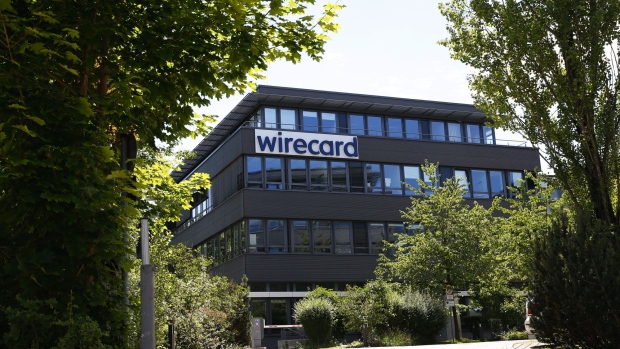Jul 2, 2020
Wirecard's complex tie-up with SoftBank unwinds after insolvency
, Bloomberg News

The brief, controversial alliance between SoftBank Group Corp. and Wirecard AG is nearing a close with the unwinding of both a marketing partnership and financial instruments behind a 900 million-euro (US$1 billion) investment last year.
Complex securities used to offload SoftBank’s risk on its Wirecard investment last year are going to be unwound after the German payments company’s collapse triggered a liquidation of the notes’ underlying collateral, according to a notice sent to investors Wednesday that was seen by Bloomberg.
The notes were backed by Wirecard convertible bonds, which will now be sold off in a process overseen by Credit Suisse Group AG.
The repackaged securities were issued to institutional investors in October 2019 through a deal arranged by Credit Suisse. The Wirecard convertible bonds backing the notes will be offloaded through a modified Dutch auction set to take place around July 8, Wednesday’s notice shows.
Wirecard and SoftBank announced a strategic partnership in April last year that was seen as a vote of confidence in the troubled German company, which had been fending off accusations about its accounting for more than a decade. As part of the deal, SoftBank agreed to invest 900 million euros through a five-year convertible bond.
Stock Surge
The deal did much to support a run-up of about 20 per cent in the German payments processor over the next several months. By September 2019, the stock reached 150 euros apiece, well above the convertible bond strike price.
The notes were issued with an annual coupon of 1.9 per cent and could be converted into Wirecard shares if they hit a strike price of 130 euros, terms seen as favorable to the Japanese investment firm.
In order to take some of its profit on Wirecard’s rally, without diluting the German firm’s shares or signaling to the market a loss of faith, Credit Suisse arranged the sale of 900 million euros worth of notes exchangeable into Wirecard shares through special purpose vehicle Argentum Netherlands BV, using the original convertible bond as collateral and allowing SoftBank an early payout on its investment.
The securities were designed to protect the SoftBank group from Wirecard’s credit risk while still leaving room to benefit from the upside, according to a person familiar with the matter. In the end, the group booked a profit at the time of the conversion, but there was no additional profit, the person said, asking not to be identified because the information is private.
Missing Cash
There’s also been no activity on SoftBank’s marketing agreement with Wirecard since October after further revelations of suspect accounting activities appeared in the press, the person said. The investor had made a number of introductions between Wirecard and its portfolio companies, some of which resulted in memorandums of understanding about potential collaboration, the person said, asking not to be identified because the decision was private.
A representative for SoftBank declined to comment on the company’s relationship with Wirecard. Wirecard has said it’s not making further statements to the press at the moment and didn’t immediately respond to a request for comment.
Wirecard applied for protection from creditors after investigations revealed that 1.9 billion euros previously reported as cash was missing from its accounts and probably never existed. On Monday, a Munich court appointed Michael Jaffe as its preliminary insolvency administrator.
Wirecard’s shares dropped 33 per cent to 3.21 euros at 4:18 p.m. in Frankfurt trading. The stock has declined about 97 per cent this year.
--With assistance from Luca Casiraghi, Swetha Gopinath and Sarah Syed.




